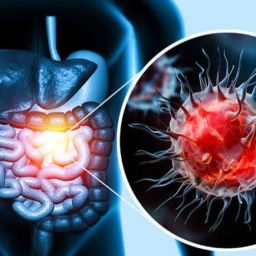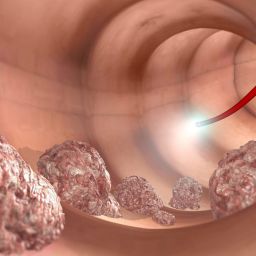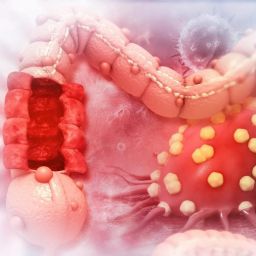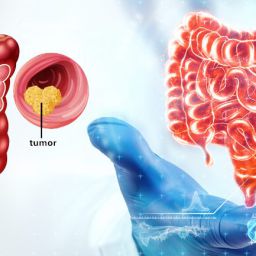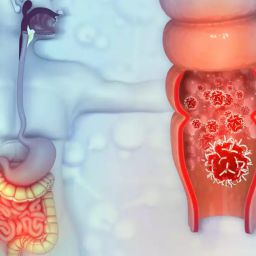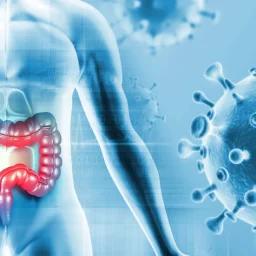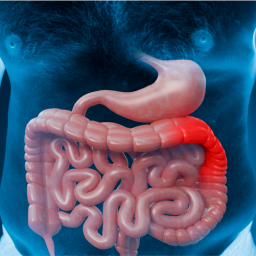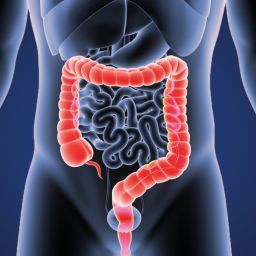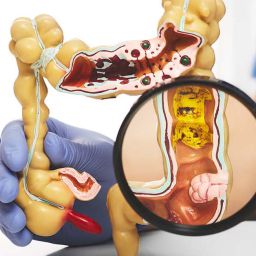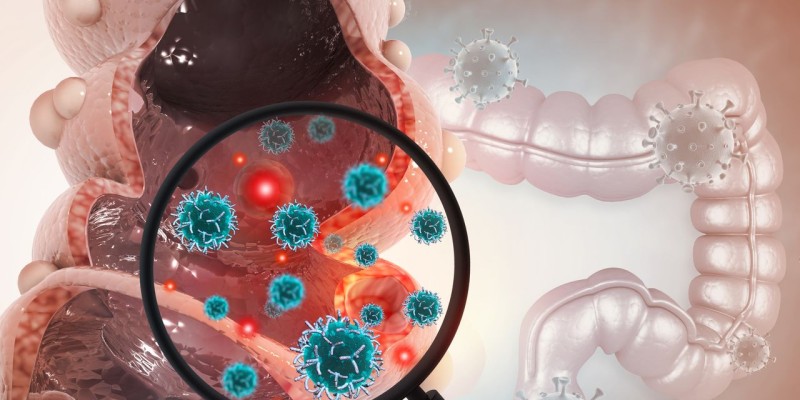
Genetic Factors Increasing the Risk of Colon Cancer
Genetics play a significant role in the development of colon cancer. Certain inherited gene mutations and family history can increase the likelihood of developing this type of cancer. Below are some of the most important genetic factors involved.
1. Family History of Colon Cancer
One of the strongest risk factors for colon cancer is a family history of the disease. If a close relative (parent, sibling, or child) has had colon cancer, your risk of developing the disease is higher. This is particularly true if multiple family members have been diagnosed or if the cancer was diagnosed at an early age.
Family members of individuals with colon cancer are advised to undergo earlier and more frequent screenings, even before the age of 50, as a proactive measure to detect any early signs of cancer.
2. Hereditary Nonpolyposis Colorectal Cancer (HNPCC)
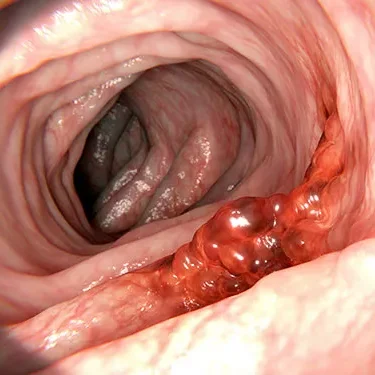
Also known as Lynch syndrome, HNPCC is an inherited condition that increases the risk of developing colon cancer and other types of cancer, such as endometrial, ovarian, and stomach cancers. Individuals with Lynch syndrome carry mutations in specific genes (MLH1, MSH2, MSH6, PMS2, or EPCAM) that are involved in DNA repair. These mutations prevent the body from repairing mistakes in the DNA, which can lead to the development of cancer.
Those with Lynch syndrome often develop colon cancer at a younger age, typically in their 40s or 50s, and may have multiple family members affected by various cancers. Genetic testing can help identify individuals with Lynch syndrome, allowing for earlier monitoring and preventive measures.
3. Familial Adenomatous Polyposis (FAP)
Familial Adenomatous Polyposis is another inherited condition that increases the risk of colon cancer. FAP is caused by mutations in the APC gene, which is responsible for regulating cell growth in the colon. Individuals with FAP develop hundreds or thousands of polyps in the colon at an early age, usually by their teenage years. If left untreated, these polyps are likely to become cancerous.
Treatment for FAP often involves early intervention, such as removing the colon, to prevent the development of cancer. Family members of individuals with FAP are often tested for the mutation to assess their risk.
4. MUTYH-Associated Polyposis (MAP)
MUTYH-associated polyposis (MAP) is another genetic condition that can increase the risk of colon cancer. It is caused by mutations in the MUTYH gene, which is involved in repairing DNA damage. Individuals with MAP typically develop polyps in their 20s or 30s, and if left untreated, these polyps can turn cancerous.
Although MAP is less common than FAP, it still represents a significant risk for colon cancer. Genetic testing for MAP is available and can help identify individuals at risk.
5. Other Genetic Syndromes
There are several other rare genetic syndromes that can increase the risk of colon cancer. These include:
- Peutz-Jeghers Syndrome: Caused by mutations in the STK11 gene, this condition leads to the development of polyps in the colon and increased risk of several cancers, including breast and pancreatic cancer.
- Juvenile Polyposis Syndrome: This condition causes the development of numerous polyps in the colon and rectum, increasing the risk of colon cancer.
Environmental and Lifestyle Factors That Increase the Risk of Colon Cancer
In addition to genetic factors, environmental and lifestyle choices significantly influence the risk of developing colon cancer. Many of these risk factors are modifiable, meaning that individuals can reduce their risk through changes in behavior and habits.
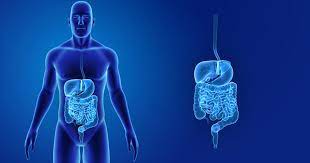
1. Dietary Habits
Diet plays a crucial role in the development of colon cancer. Diets high in red and processed meats, such as bacon, sausages, and hot dogs, have been linked to an increased risk of colon cancer. These foods contain compounds that may cause DNA damage and promote cancer growth in the colon. On the other hand, a diet rich in fruits, vegetables, whole grains, and fiber has been shown to lower the risk of colon cancer.
The following dietary factors have been associated with an increased risk of colon cancer:
- High consumption of red meat: Red meat, particularly when cooked at high temperatures (grilled or fried), may increase cancer risk due to the formation of carcinogenic compounds.
- High intake of processed meats: Processed meats contain nitrates and nitrites, which can promote cancer cell formation.
- Low fiber intake: A lack of fiber in the diet is associated with slower digestion and a greater risk of colon cancer.
2. Physical Inactivity and Obesity
A sedentary lifestyle and obesity are both significant risk factors for colon cancer. Regular physical activity helps promote healthy digestion and reduces inflammation in the body. In contrast, individuals who are inactive and overweight or obese are at a higher risk for developing colon cancer, particularly if they carry excess weight around the abdomen.
Research has shown that individuals who engage in regular physical exercise, such as walking, running, or cycling, have a lower risk of colon cancer. Weight loss, especially abdominal fat reduction, also contributes to lowering the risk.
3. Smoking
Smoking is a well-established risk factor for various cancers, including colon cancer. The toxins in cigarette smoke can damage the DNA in the colon cells, increasing the likelihood of mutations that can lead to cancer. Smokers have a significantly higher risk of developing colon cancer than non-smokers.
Even after quitting, former smokers continue to have an elevated risk of colon cancer for many years. The best way to reduce this risk is to avoid smoking altogether.
4. Alcohol Consumption
Excessive alcohol consumption is another environmental risk factor for colon cancer. Studies have shown that individuals who consume large amounts of alcohol (more than two drinks per day) have a higher risk of developing colon cancer. Alcohol can increase the production of acetaldehyde, a substance that can damage the DNA in colon cells.
Moderate alcohol consumption (one drink per day for women and two drinks per day for men) may have less of an impact, but it’s important to be mindful of alcohol intake.
5. Chronic Inflammation and Inflammatory Bowel Diseases (IBD)
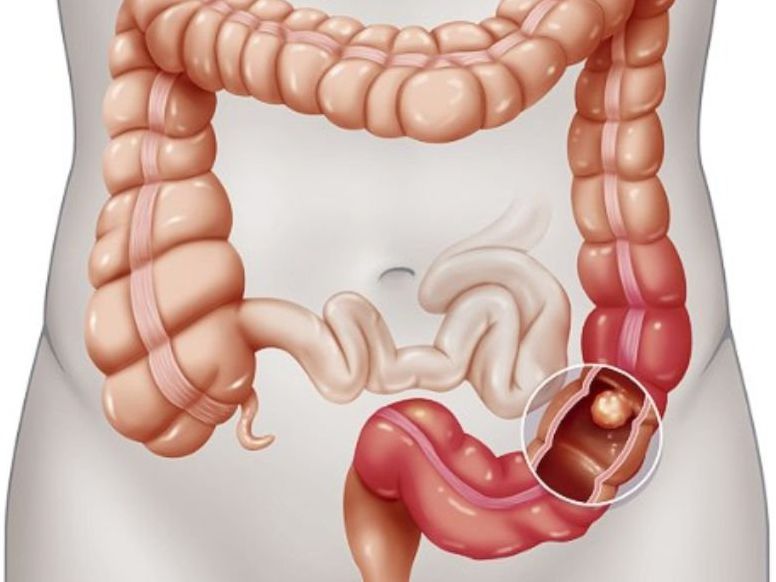
Chronic inflammation in the colon, often caused by conditions like Crohn’s disease and ulcerative colitis, significantly increases the risk of colon cancer. These inflammatory bowel diseases (IBD) cause prolonged irritation and damage to the colon lining, which can lead to the development of cancerous cells.
Individuals with IBD are advised to undergo regular screenings and follow their treatment plans to manage inflammation and reduce cancer risk.
6. Age and Gender
Colon cancer is more common in individuals over the age of 50, and the risk continues to increase with age. Men are also more likely to develop colon cancer than women, although the gender gap has been narrowing in recent years. The reasons behind these age and gender-related risks are not fully understood, but they may be related to accumulated genetic mutations and lifestyle factors over time.
Reducing the Risk of Colon Cancer
While some risk factors for colon cancer, such as genetics, cannot be changed, many lifestyle and environmental factors can be modified to reduce the likelihood of developing the disease. Key preventive strategies include:
- Regular screenings: Colonoscopies and other screening tests can detect precancerous polyps early, which can then be removed before they turn cancerous.
- Adopting a healthy diet: Emphasize plant-based foods, whole grains, and fiber while limiting red and processed meats.
- Staying active: Aim for at least 30 minutes of physical activity most days of the week.
- Maintaining a healthy weight: Achieving and maintaining a healthy body weight, particularly around the abdomen, reduces the risk.
- Avoiding smoking and limiting alcohol consumption: These behaviors can significantly reduce the risk of colon cancer.
- Managing chronic conditions: Effectively treating conditions like IBD and reducing inflammation in the colon is essential for preventing cancer.
Colon cancer is a multifactorial disease, with both genetic and environmental factors contributing to its development. While some individuals may be predisposed due to family history or inherited genetic mutations, many lifestyle factors, such as diet, physical activity, and smoking habits, also play a critical role. By understanding these risk factors, individuals can take proactive steps to reduce

